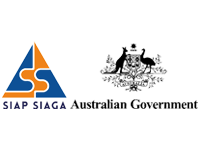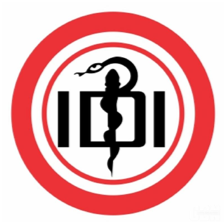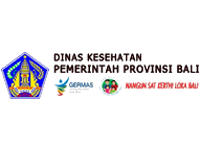Indonesia declared a public health emergency on 31 March 2020 as the number of COVID-19 infections and deaths continue to rise across the country at a rapid pace. In order to slow-down the rate of infections and protect front-line medical workers as they provide critical services to those affected, Kopernik has partnered with SIAP SIAGA and the Australian Department of Foreign Affairs and Trade (DFAT) to support health workers and to prevent the spread of the COVID-19 pandemic in Bali and East Nusa Tenggara (NTT). The SIAP SIAGA Program is an Australia-Indonesia Partnership in Disaster Risk Management, which aims to strengthen Indonesia’s management of disaster risk and engagement between Australia and Indonesia through an adaptive approach that puts learning and knowledge management at the core of the program. The program focuses on understanding the cause and effect of changes within the system, developing actions to better harness and influence behaviors and patterns that could improve Indonesia’s ability to prevent, prepare for, respond to, and recover from disaster.
This project has been funded by SIAP SIAGA and DFAT and is part of Kopernik’s broader COVID-19 Emergency Response initiative, which can be viewed here.
THE PROBLEM
Knowledge among the general public about basic preventative actions that need to be taken on how to slow down the spread of the virus remains limited. The virus is transmitted through direct contact with respiratory droplets of an infected person. Individuals can also be infected from and touching surfaces contaminated with the virus and touching their face. While COVID-19 continues to spread it is important that people understand basic information about the virus, how it is transmitted and how to prevent further transmission and reduce the impacts of the outbreak.
The rapid spread of COVID-19 virus is putting great pressure on healthcare facilities, with many facing a shortage of medical supplies such as Personal Protective Equipment (PPE) and sanitizing supplies, according to Indonesia’s Ministry of Health, Bali’s public hospitals and Indonesia’s Doctors Association. This is a real threat that puts health care workers at a high risk of exposure, exerting even more pressure into facilities which are already handling a growing number of cases.
THE SOLUTION
We are focusing our support on two key areas: 1. Prevention 2. Emergency Response
1. Prevention: Slowing down the spread of COVID-19
Public Education Campaign
The public education campaign is increasing knowledge among the general public about basic preventative actions that need to be taken to protect themselves against infection and slow down the spread of the virus. All content produced and disseminated is aligned with guidelines from the World Health Organisation as well as the Indonesian Government COVID-19 response. The public education campaign is collaborating with the #AmanDariCovid19 campaign that supports Indonesians to safeguard themselves and their communities with engaging and trustworthy information about the virus and how to reduce the spread of COVID-19. Funding supports the production and dissemination of high quality content.
Soap Distribution
Washing hands frequently with soap and water is the most effective at prevention of virus transmission as soap kills the virus. We are distributing soap to banjars/villages and markets in Bali and NTT, together with educational materials explaining the importance of frequent hand washing with soap as well as instructions on how to wash hands effectively.
Hand Sanitizer Distribution
If soap and water is not available, then hand sanitizer with 70% alcohol content also kills the virus. We are distributing sanitizer to banjars/villages and markets in Bali and NTT, as well as medical facilities (see below).
2. Emergency Response: Support to Frontline Medical Personnel
With an increasing number of COVID-19 cases, health care facilities are facing a shortage of medical supplies such as Personal Protective Equipment (PPE) and sanitizing supplies, according to Indonesia’s Ministry of Health, Bali’s public hospitals and Indonesia’s Doctors Association. This puts health care workers at greater risks of exposure to COVID-19, exerting more pressure on facilities that are already handling a growing number of cases. In order to protect frontline medical personnel, we are distributing Personal Protective Equipment (PPE) and sanitizing supplies to hospitals and clinics around Bali and NTT including public and private hospitals as well as clinics (pratama and utama).
While the needs continue to evolve, the current needs of medical personnel include:
Coveralls/gowns, head and shoe covers
We are procuring these items and distributing them to hospitals and clinics in Bali and NTT based on needs identified through local Gugus Tugas COVID-19.
Face shields
As these are not currently available for purchase due to nation-wide shortages we have designed and are producing a protective face shield which will be distributed to protect medical personnel. The face shield has been approved by Gugus Tugas COVID-19 Bali Province, Dinas Kesehatan and BNPB. The distribution is based on needs identified through Gugus Tugas COVID-19 Bali Province.
Respiratory masks
We are procuring and distributing N-95 masks to the extent possible. Given the supply shortages we are also working on the production of masks to be distributed to medical personnel. The distribution is based on needs identified through Gugus Tugas COVID-19 Bali and NTT Provinces.
Soap and hand sanitizer
Hospitals and clinics are facing a shortage of soap. We are distributing liquid hand soap as well as sanitizer to hospitals and clinics. The distribution is based on needs identified through Gugus Tugas COVID-19 Bali and NTT Provinces.
THE EXPECTED IMPACT
The response is expected to:
Prevention
- Reduce spread of COVID-19 through increased public knowledge, reduced movement, and improved hygiene.
Emergency Response
- Protect medical personnel.
- Protect patients treated at targeted healthcare facilities.
PROJECT COST
Prevention Campaign Costs
Costs associated with development, production and distribution of campaign materials.
$8,182
Response Campaign Costs: PPE procurement and distribution
Costs associated with the purchase and distribution of Personal Protective Equipment (PPE) for healthcare workers at hospitals and clinics in Bali and NTT.
$81,541
Response Campaign Costs: Face shield and mask production, procurement and distribution
Costs associated with the purchase, production and distribution of face masks and face shields in Bali and NTT.
$38,379
Response Campaign Costs: Sanitizing supplies procurement
Costs associated with the purchase and distribution of soap and hand sanitizer in Bali and NTT.
$12,000
Total $140,102







